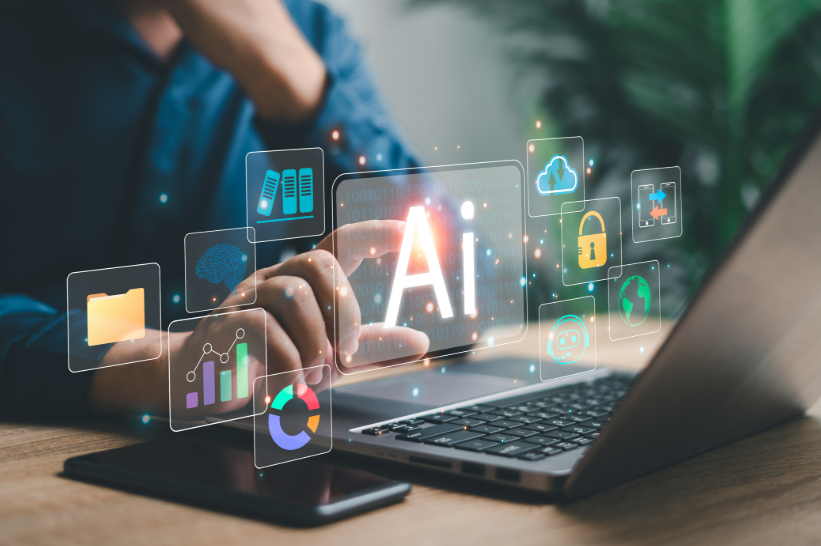
AI For Professionals In The Modern Workplace
Introduction To AI In Professional Settings
In today’s digital-first economy, artificial intelligence is not just for data scientists or developers. It has become an essential tool across various professions. The use of ai for professionals is expanding rapidly, from automating daily tasks to improving decision-making and streamlining operations. As industries become more reliant on data and technology, professionals across sectors are realizing the value of integrating AI into their skillsets.
Why AI Matters For Career Growth
The adoption of ai for professionals has opened new avenues for career development. AI tools are revolutionizing the way professionals work, enabling them to be more efficient and productive. Here’s why AI is critical for modern careers:
- Automation: Routine tasks can be automated, freeing up time for strategic thinking.
- Data-Driven Decisions: AI helps interpret large data sets to guide accurate decision-making.
- Competitive Edge: Professionals skilled in AI are more likely to stand out in the job market.
- Increased Productivity: With AI, professionals can manage time and resources more effectively.
From marketing managers to financial analysts, professionals in every field are benefiting from AI integration.
Common AI Applications Used By Professionals
There are numerous tools and technologies that fall under the umbrella of ai for professionals. These tools are tailored to meet specific industry needs:
- Chatbots And Virtual Assistants: Customer service agents use AI chatbots to handle inquiries.
- Predictive Analytics: Sales and marketing professionals use AI to forecast trends and customer behavior.
- Natural Language Processing: Legal professionals use NLP to analyze documents and contracts.
- Computer Vision: Used by quality control engineers in manufacturing for defect detection.
- Recommendation Systems: Utilized by content creators, e-commerce platforms, and digital marketers.
These applications show how AI enhances daily tasks without requiring users to be technical experts.
Best Ways To Learn AI As A Working Professional
For those looking to adopt ai for professionals into their skill set, the learning path is accessible and flexible. Here are some effective ways to start:
- Online Courses: Platforms like Coursera, LinkedIn Learning, and edX offer part-time programs.
- Micro-Credentials: Certifications focused on practical use cases of AI in industries.
- Workshops And Bootcamps: Intensive learning for quick upskilling.
- Company Training Programs: Many companies now provide internal AI training to employees.
- Self-Paced Learning: Books, podcasts, and tutorials tailored for busy professionals.
Professionals can choose a path that fits their schedule and industry relevance.
See also: 5 Common Heating Issues Coral Springs Technicians Fix Every Winter
AI For Different Professions
The role of ai for professionals differs from one field to another. Here’s how it supports various careers:
- Healthcare: AI helps doctors in diagnosis, treatment planning, and medical imaging.
- Finance: AI is used for risk assessment, fraud detection, and portfolio optimization.
- Education: Teachers use AI tools for personalized learning and performance analysis.
- Real Estate: AI aids in property valuation, customer management, and market analysis.
- Human Resources: AI supports resume screening, employee engagement, and workforce analytics.
This wide range of uses highlights AI’s versatility and importance across sectors.
Challenges Faced By Professionals While Adopting AI
Despite the advantages, there are several challenges when it comes to ai for professionals:
- Lack Of Technical Knowledge: Many professionals fear that AI is too complex.
- Resistance To Change: Some may hesitate to adopt AI due to comfort with traditional methods.
- Data Privacy Concerns: Handling sensitive information requires careful AI usage.
- Cost Of Implementation: Smaller organizations might find AI tools expensive to deploy.
Overcoming these challenges requires a mix of education, awareness, and gradual implementation.
Ethical Use Of AI In The Workplace
As more professionals begin using AI, ethical considerations are becoming more important. Responsible use of ai for professionals involves:
- Transparency: Ensuring users understand how AI systems make decisions.
- Bias Mitigation: Avoiding biased data sets that can lead to unfair outcomes.
- Security: Protecting data from misuse or unauthorized access.
- Accountability: Professionals must take responsibility for AI outputs in their domain.
Ethical AI practices ensure trust and reliability in the workplace.
Benefits Of AI Certification For Professionals
Earning a certification in study artificial intelligence adds credibility and opens doors to better job opportunities. Certifications from recognized institutions demonstrate your commitment to learning and staying updated. They also provide:
- Structured Learning Paths
- Practical Applications
- Access To Global Expert Networks
- Career Advancement
These certifications are highly valued by employers across industries.
Future Of AI In Professional Roles
The future of ai for professionals is promising. As more tools become user-friendly and accessible, professionals without coding backgrounds will be able to leverage AI effortlessly. Emerging trends include:
- Low-Code/No-Code AI Platforms
- AI Assistants For Scheduling And Research
- Voice-Driven Workflows
- AI-Powered Business Intelligence Tools
In the near future, AI will become a standard part of every professional’s digital toolkit.
Conclusion
The integration of ai for professionals is reshaping the modern workplace. No matter your job role or industry, understanding how to use AI effectively will soon become a standard expectation. Professionals who adapt and learn how to work alongside AI will not only improve their own performance but will also contribute to smarter, faster, and more innovative workplaces. Now is the time to embrace AI and become future-ready.




